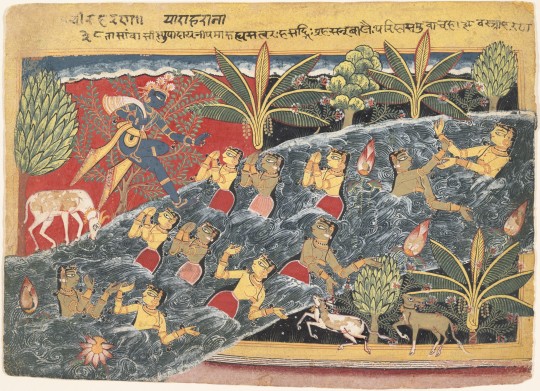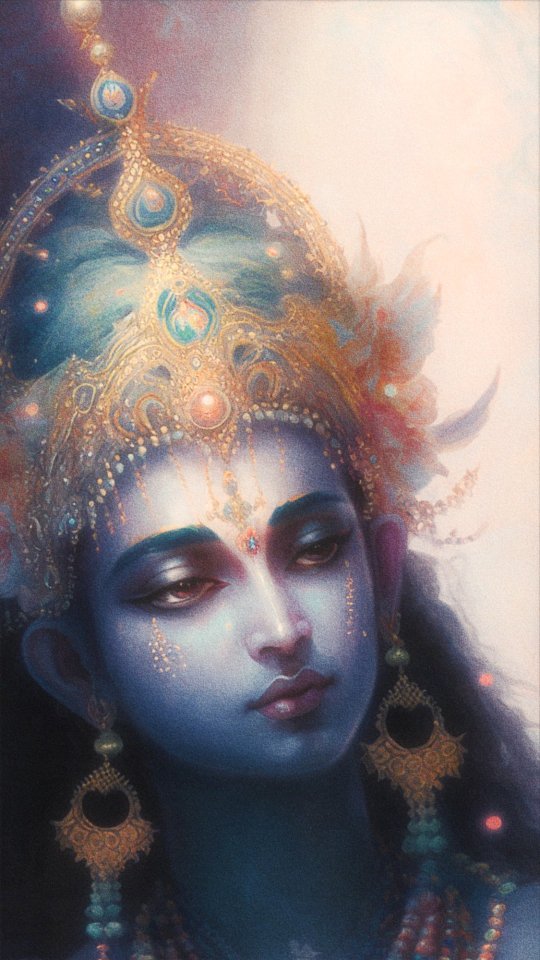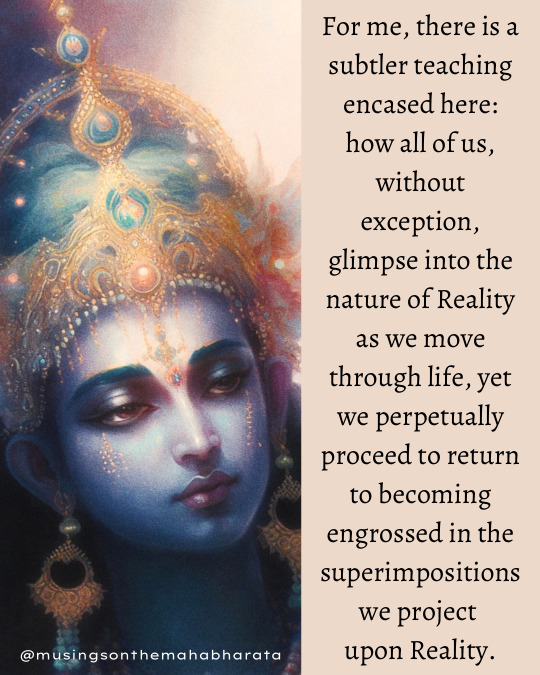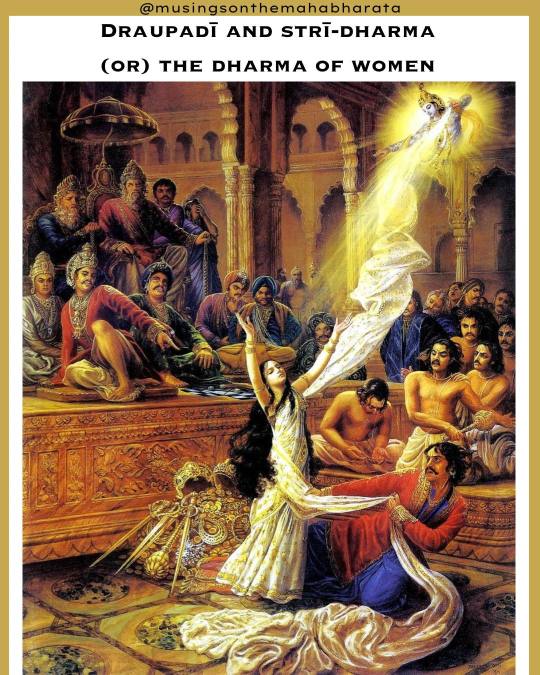#Bhagavad Gita
Text
Robert Oppenheimer: “Now I am become Death, the destroyer of worlds.”
2K notes
·
View notes
Text
Every Literary Reference Gale Makes When Selected in BG3 (That I Could Find)
"Oh, what a tangled Weave we web!" -
A play on words referencing the famous quote, "Oh, what a tangled web we weave when first we practice to deceive," from Sir Walter Scott's poem "Marmion."
"What fools these mortals be." -
A quote from William Shakespeare's play "A Midsummer Night's Dream," spoken by the character Puck.
"All the world's my stage and you're just a player in it." -
A reference to the famous Shakespearean line, "All the world's a stage, and all the men and women merely players," from "As You Like It."
"No rest for the wicked" -
A phrase that originates from the Bible Isaiah 48:22 There is no peace, saith the Lord, unto the wicked.
"To hold the world in the palm of one's hand" -
I believe this is a reference to this part of the poem Auguries of Innocence by William Blake:
To see a World in a Grain of Sand
And a Heaven in a Wild Flower,
Hold Infinity in the palm of your hand
And Eternity in an hour.
"'Doth thy mirror crack?' Apparently not." -
I was so sure this was a quote from some Shakespearean play but nope lol. This is a Waterdhavian phrase that was mentioned in a DnD companion book at some point.
"Seek and you shall find me." -
From the bible. Specifically Matthew 7:7–8
Ask, and it shall be given you; seek, and ye shall find; knock, and it shall be opened unto you: for every one that asketh receiveth; and he that seeketh findeth; and to him that knocketh it shall be opened.
The path less travelled. -
A reference to Robert Frost's poem "The Road Not Taken," which includes the line, "Two roads diverged in a wood, and I—I took the one less traveled by."
"Creator. Destroyer." -
This is a reference to the Lord Krishna's words in the Bhagavad Gita.
O Arjuna, I am the creator, maintainer and destroyer of all created objects, such as the sky. Of all knowledge I am knowledge of the self, and in logical debate I am vāda, the philosophical principle that asserts the conclusive truth.
"A rough tempest I will raise" -
I found the explanation behind this quote from a reddit post:
"Shakespeare - Tempest, - this is a mash-up of two quotes: In Act V, Scene 1, Prospero uses the phrasing "when first I raised the Tempest". In the same scene, he recites a soliloquy about the great works of magic he has accomplished, before finally renouncing magic altogether: " … But this rough magic I here abjure" https://www.reddit.com/r/BaldursGate3/comments/17uher2/literary_references_in_gales_selection_remarks/ (this person came to the same conclusions as me for many of the prior quotes but I only used their post for this one haha)
I almost certainly missed a few! If there are any others please feel free to reblog and add them!
#bg3#baldur's gate 3#gale dekarios#gale of waterdeep#literature#bible#bhagavad gita#walter scott#shakespeare#william blake#robert frost
301 notes
·
View notes
Text

"Those who are devoted and have love for Me, in their constant contemplation of Me, their lives intertwined with Mine, they illuminate each other with their knowledge of Me, and their conversations are filled with the joy and contentment they find in Me."
~Bhagavad Gita 10.9
#krishna#love#bhakti#devotion#flute#gita#bhagavatam#art#beauty#bhagavadgita#radharaman#radhakrishna#radharani#vishnu#hare krishna#bhagavad gita#iskcon#srila prabhupada
178 notes
·
View notes
Text

Help me, I need sleep and here I am
#krishna#gopiblr#kanhaiya#krishnablr#desi stuff#kanha#krishna is the best#hindu mythology#mahabharat memes#arjun is me tho#geeta is just krishna calling arjun a whiny little baby for 700 verses#arjun#a#is this geeta?#geetagyan#bhagavad gita#gita summary
192 notes
·
View notes
Text


Master of the "Isarda" Bhagavata Purana
The Gopis Plead with Krishna to Return Their Clothing: Folio from "Isarda" Bhagavata Purana. With detail
ca. 1560–65
7 3/8 × 10 1/8 in. (18.7 × 25.7 cm)
129 notes
·
View notes
Text
#पवित्रहिन्दूशास्त्रVSहिन्दू
श्री देवी जी ने राजा हिमालय से कहा कि हे राजन् ! और बातें छो��़कर यानि और सबकी भक्ति छोड़कर केवल ओम् नाम का स्मरण कर, जिसके स्मरण से तू ब्रह्म को प्राप्त हो जाएगा जो दिव्य आकाश रूप ब्रह्मलोक में रहता है।
youtube.com/watch?v=9GAFkQ
Sant Rampal Ji Maharaj

73 notes
·
View notes
Text
Something I find fascinating about the Critical Edition of the Mahābhārata is that the characters sporadically move from addressing Kṛṣṇa as an embodied mortal (as their friend, cousin, son-in-law etc) to addressing him as the Godhead; as Viṣṇu, as the Supreme Being, and as Īśvara. The succession of change between the modes of address can sometimes even happen on the same page, at a distance of a few lines. The veil is lifted, and the characters see through Kṛṣṇa’s illusion, and, through that, they become immersed in the nature of Reality; the veil promptly drops back, and God is lost. An argument for this could be that the divine modes of address are interpolations, a theory being that Kṛṣṇa became identified with Viṣṇu only in later renditions of the Mahābhārata. While this could be true at the level of historical analysis of the epic, for me, there is a subtler teaching encased here: how all of us, without exception, glimpse into the nature of Reality as we move through life, yet we perpetually proceed to return to becoming engrossed in the superimpositions we project upon Reality; and the dance continues. From Truth to dream, from dream to Truth. It is quite endearing, really. What committed and imaginative dreamers we are!
Adyashanti once talked about how one inadvertently glimpses truth; it is, after all, inescapable as it is our nature; the trick is not forgetting / losing the glimpse.
Gorgeous artwork of Kṛṣṇa: Awedict.




#mahabharata#krishna#mahabharat#mahabharatam#gopala#govinda#adyashanti#nonduality#non dualism#non duality#avatara#hare krishna#krishna consciousness#hinduism#hindu art#awedict#bhagavad gita#vishnu#ishvara#bhakti#hindu mythology#itihasa#sanskrit#hindu#gopal
121 notes
·
View notes
Text
After Krishna left for Dwarka, Radha used to keep herself a lot busier than usual; doing her chores back in Vrindavan, talking to the trees finding Krishna in everything, taking care of the people and animals. At night she would go to her room and sit in front of the mirror, sigh and take out her shringaar. Tonight, as soon as she looked into her reflection, it was her Kanha smiling at her.
"How's Dwarka dheesh doing?" she carefully kept her tone as teasing, afraid that if he suspects even a little bit of sadness then he will come running to her right away, leaving everything behind
"Oh please, Radhe. You should come sometime, you used to before but you barely do now."
Radha cupped Kanha's cheek in the mirror
"My sweet mohana, you know I can't. It's my duty to give you and your ashtabharya all the space and love," laughing, she added a little wistfully "As it is I don't really have a good reputation out here. Krishna's lover. But why? Krishna has millions of lovers. The whole brahmaand is his lover. Why worship one exclusively with him? If he loves all his lovers equally then why just worship this Radha with him? She isn't even his wife. Unlike Mahadev and Parvati, they aren't even legitima-"
"Radhe." Krishna stopped her with tears in his eyes
Radha, hurting as much as him, apologized and continued "but it is true, my love. People only view love as black or white. They think marriage is sanctity when it is the bond that is. Not the label."
Nodding, Krishna whispered "do you miss me?"
She laughed till there were tears in her eyes too "Oh Kanha, you are everywhere I look. Every time I breathe."
"Then why talk to me like this? Why summon me here?"
"Because you are everywhere. Everywhere but right here."
Kanha's eyes softened "I am within you, sakhi. Always."
Nodding and smiling, she looked away to wipe her tears "yes yes, I know that." she looked back in Kanha's eyes "only if I could somehow tell that to Yashoda maiya, Nand baba and all the gopiyan and people here. Maiya is inconsolable, kanha. She cries and says 'that boy always tricks me. I saw the universe in his mouth when he was a child. Now wherever I look, I see him. But I just want him to come steal my makhan. Kanha, where are you? I promise I'll never scold you.'
Krishna touches the mirror ever so gently
"Kanha, they think you are not real when you are everywhere. They think it's an illusion and all they do is weep."
"But they forgot that Maya is Krishna and Mohana is Krishna. Everything that involves krishna is as real as the morpankh falling from the sky quietly into their palms when they think of Him." Radha and krishna whisper at the same time
"Tomorrow the Pandavas and Kauravas fight and I'm Arjuna's saarthi. After killing Kansa mama, the trajectory of my life has changed completely. But I miss Vrindavan, Kishori. I honestly don't even know what to do. They call me God but forget I'm a human in this avatar too. All I can feel is Gandhari's pain. Even if she hates me with everything she has and cursed me for my existence but I just can't help but feel for her so deeply. What can I do?" he sobs
"What Kauravas did was wrong but Gandhari is a mother, kanha. Her pain can't be measured. It is unbearable but justified. But so is your karma and dharma. Whatever you do will be remembered forever. They all need you. So go, sakha. Do what needs to be done. I believe in you. I love you. We all do."
Krishna smiled through the tears
Radha whispered "we parted physically to fulfill our dharma in this lifetime but you know? I.. I'm just so tired, Kanha. It's been so long. I just want to go home. To Goloka. Our home. I feel my purpose here is coming to an end..."
"So is mine, Radhe.. so is mine. We are One." Kanha clutched the mirror closer to his chest and Radha did too - both of them in an eternal embrace.
"We will go home very soon. To everyone we love, finally. It's my vachan, sakhi."
#desi aesthetic#desi tag#desiblr#desi#desi culture#desi dark academia#desi stuff#desi academia#desi girl#just desi things#radhakrishna#krishna#krishnablr#gopiblr#radha#mahabharata#narayana#lakshmi narayan#bhagavad gita#bhagavatam#kanha#desi thoughts#desi things#growing up desi#hindu mythology#hindu gods#indian culture#raas#janmashtami
146 notes
·
View notes
Text

"Rāmānanda Rāya continued, “The Supersoul within everyone’s heart speaks not externally but from within. He instructs the devotees in all respects, and that is His way of instruction.”
61 notes
·
View notes
Text



bring into 2024...
------------------------------------------------------------------------------
work without the expectations to bear the fruit of the labor
In the Bhagavad Gita, Krishna talks about working without the expectations to bear the fruit of the labor (Chapter 2, Verse 47). He says "do not allow rewards to be the motive for your actions. Don't be attached to laziness either.
You don't have to be Hindu or religious to implement this in your life. In the Gita, it is said that when you work without desire for the rewards, you are happy and completely detached. This verse encourages us to aim to be the best in all that we do without worry for the results.
Think about it this way, when you are worried about the results, is your focus really at a high? If you study with the worry for the grade rather than your understanding of the concept, are you likely to get the good grade? Regardless of whether or not you fail, you're gonna get back up and work either way the next day. Win or lose.
So as we go on our self improvement journey in 2024, try to implement this simple yet powerful thing. You'll be suprised just how much lighter and happier you'll feel within work, manifestation, school, etc. As an athlete, once I started playing my games without worry for the end result, I performed so so much better. Again, regardless of whether or not you win or lose, you're still gonna get back to improving yourself the next day. So take your mind off the thing you can't control, and focus on your own individual betterment through hard work. Lead with love, and let's have an amazing 2024!!
#self love#life#god#self concept#aura#love life#self improvement#spiritual#transformation#2024 goals#bhagavad gita#hard work#self betterment#self care#self healing#love yourself#law of assumption#loa
124 notes
·
View notes
Text
'"Oppenheimer" is the summer blockbuster of the year. The visually and sonically compelling film does a lot of things right from examining the existential dread associated with our feeble humanity and analyzing the moral qualms with human ingenuity and its devastating outcomes that showcase we are the culprits of our own destruction.
But it also does some things wrong too. It has a woman problem.
Christopher Nolan's three-hour-long biopic tells the story of the brilliant quantum physicist, J. Robert Oppenheimer (Cillian Murphy) based on the biography "American Prometheus." The Oppenheimer we uncover in Nolan's film stresses that he is a charmer – he's a womanizer. Nolan wants the audience to know that not only is Oppenheimer one of the most important historical figures in the 20th century, but he also can pull a Communist female Stanford grad student.
One of the most polarizing aspects of the film is Oppenheimer's on again, off again relationship with said grad student, Jean Tatlock (Florence Pugh). Some would say the way Nolan portrays the relationship and Jean, and her inevitable death by suicide is indicative of a larger issue with the depiction of women in his films.
In their first encounter, they quickly find themselves in bed together. In a controversial scene, Jean and Oppenheimer are having sex while he reads Bhagavad Gita, a sacred text in Hinduism. He reads the line, "Now I am become death, the destroyer of worlds," during the act itself. Hindu right-wing nationalists called the scene an "attack on Hinduism."
But that isn't the only sex scene between the two in the film. Further into the behemoth of a film, in McCarthy-era America, a room full of government officials question Oppenheimer's former communist ties. He reveals to the board his previous relationship with Jean and how it evolved into an affair. He's now married to Kitty Oppenheimer (Emily Blunt), who is there in the room as he admits to his extramarital affair.
Nolan portrays this confession in the most blatant way possible. Without warning or explanation, a naked Jean is seen straddling and having sex with Oppenheimer as he sits in the chair being interrogated. Is it his imagination? Is it Nolan's one-the-nose way of showing the impact of the confession? Regardless, the audience sees this as the couple going at it while Oppenheimer is staring at the board of men questioning him. It's creepy. The imaginary Jean even glances directly at his wife – his wife who just found out Oppenheimer had been cheating on her for years. Is this storytelling device attention-grabbing? Absolutely, but not in a good way.
It's vital to point out the flaws in a filmmaker's perspective when it's used to only service a man's story and nothing else. As an audience member, the context of the scene and what it does for the larger narrative matters; it is a part of the moviegoer's entire film experience. And as I was watching the second sex scene with Oppenheimer and Jean, I gasped at how disjointed it felt from the larger story Nolan was attempting to illustrate. Sex scenes aren't inherently controversial, nor do they have to be, especially if they are filmed with appropriate boundaries and respect toward the actors and characters. But in "Oppenheimer" something about the audience watching the sex scene in the same way the characters in the interrogation room watched it – feels icky and voyeuristic. And also puzzling.
"Oppenheimer" is an engrossing film. Its riveting acting and nonlinear storytelling infused with cinematic shots of the galaxy and stars hold the audience in a trance. Well, that is until you watch that ill-advised foray into filmmaking voyeurism. It completely snatches you out of the film and puts you back into your body.
Moreso, the scene wouldn't be so jarring if there wasn't such little Jean in the film. Pugh's talents are wasted as she attempts to embody an emotionally embattled intellectual. Jean is a seemingly dark, unconventional type of woman from the 1940s. She is studying to be a psychiatrist but also struggles with depression, and it was speculated that she was queer. But we don't really receive any of this information from the film. We can tell that she's stubborn, volatile and complicated but we are more or less told that through Oppenheimer's perspective of her as his love interest.
This also counts for his wife, Kitty – another female character with unbridled, untapped potential. But of course, she only exists in the roles of love interest, mother and Oppenheimer's conscience. The film only slightly touches on Kitty's tragic past, potential mental health issues and rejection of motherhood. Thankfully, Blunt's acting makes the role feel fuller than it is written to be.
If we address Nolan's track record with female characters, he is known for two tropes: Dead Wife and Woman in A Refrigerator. Across the filmmaker's extensive work, he has a proclivity for fridging, that is killing off a female love interest – in films like "Memento," "The Prestige," "Inception" and "The Dark Knight" – as an alluring and tragic backstory for his male protagonists just like he did with Jean. Of course, she is based on a real person, but Nolan's treatment of her and her tragic death is the same as if she were fictional. The audience is left with very little understanding of Jean, not even with her tragic death. Instead, her most indelible scenes are as Oppenheimer's sex object or in death, a way to humanize the physicist. (And when Nolan doesn't get around to killing off his female characters, he sidelines them like Kitty or Elizabeth Delicki's character in "Tenet.")
Sure, you can argue the film being named "Oppenheimer" means it's entirely about him, and all the supporting characters should only act to elevate his story. The script was even written in first person to convey that every character is just a piece in Oppenheimer's narrative.
However, just because the story is titled "Oppenheimer" doesn't mean one has to adhere to such tunnel vision in storytelling. Case in point is another film named for a singular person – that came out on the same day as " Oppenheimer" in fact – and proves that argument flimsy at best.
"Barbie" does what "Oppenheimer" fails to do.
"Barbie" follows the journey of the human-sized doll (embodied by Margot Robbie) through her existential awakening, crisis and eventual empowerment. But it also spends a significant chunk of its runtime to give her counterpart Ken (Ryan Gosling) space to explore his "neediness, loneliness and identity crisis." Gary Kramer writes for Salon that Ken "hijack[s] the plot for long stretches and force[s] Barbie to help him, not the reverse."
Ken is Barbie's accessory boyfriend but he isn't treated as just her accessory boyfriend. In the writing, Greta Gerwig and Noah Baumbach allow Ken ample room for self-discovery. Ken is allowed to explore the human world without the need to be attached to Barbie's hip. He searches for his purpose and identity. He's even given a whole musical dance number to dive into his interiority. "Barbie" does what "Oppenheimer" fails to do. It gives purpose and depth to a supporting character's arc – depth that is entirely crucial to the emotional center, vulnerability and gravitas of a character like Barbie.
Ultimately, Nolan barely scratches the surface with his female ensemble and doesn't do their larger-than-life experiences justice. It just feels like a tired attempt to show us Nolan knows women exist but the catch is they do not exist outside of their relationships to men. (Sorry, Bechdel.) Their pain and suffering are a way to transform a man into the protagonist of his story, not hers.'
#Oppenheimer#Christopher Nolan#Cillian Murphy#Florence Pugh#Jean Tatlock#Kitty#Emily Blunt#Barbie#Greta Gerwig#Noah Baumbach#American Prometheus#Bhagavad Gita#Memento#The Prestige#Inception#The Dark Knight#Tenet#Margot Robbie#Ryan Gosling
169 notes
·
View notes
Text
The "Mind-Stilling" referred to as a Valkyrie skill is actually yoga and meditation, which are Indian (and more specifically, Hindu) concepts. Yoga was created as a way to take control over your mind, body, and senses. It was the Mind-Stilling that saved Nesta (and also helped Gwyn, Emerie, and the other Valkyries). Not Cassian. It was an ancient Indian concept that saved Nesta.
Thank you for coming to my Ted Talk.
#nesta archeron#pro nesta archeron#gwyneth berdara#pro gwyneth berdara#emerie#emerie of illyria#the valkyries#yoga#meditation#india#hinduism#bhagavad gita#anti nessian
51 notes
·
View notes
Text

Arjuna, the prince from the Hindu epic Mahabharata. Some quick sketch concepts for something BIG that's coming up... 🏹
#arjuna#the pandava quintet#only arjun for now but wait for it 👀#mahabharata#bhagavad gita#when you finally see a purpose in your art#concept art#sketches#studies#renie draws#the lucky bard draws
166 notes
·
View notes
Text

"To protect the righteous, to annihilate the wicked, and to reestablish the principles of religion I appear on this earth, age after age".
-Bhagavad-Gita.
#bhagavad gita#dharma#avatar#AH#swastika#traditionalism#julius evola#tradition#ns#rene guenon#Miguel Serrano#Savitri Devi
107 notes
·
View notes
Text

Draupadī and the Dharma of Women
"Strī" translates from Sanskrit as "woman", while "dharma" is a complex principle with manifold meanings, in this context bearing the significance of "duty"; in simple terms, it refers to an individual conduct that contributes to harmony in a greater framework, be it societal or cosmological.
Draupadī is lauded in the Critical Edition of the Mbh several times as being the epitome of strī-dharma, of the dharma of women. (2.62.20; 2.63.25-30; 2.64). Interestingly, she is most intensely praised as such after she angrily (yet elegantly!) questions the men of the royal court and demands justice, being anything but meek and demure. I would argue that this showcases that in the Mahābhārata voicing oneself and standing up for oneself are considered responsibilities belonging to the dharma of women.
To nuance this even more, Eknath Easwaran, an eminent translator of the Bhagavadgītā, highlights that, etymologically, the term "dharma" can be traced back to the root 'dhri', which means 'to support, hold up, or bear'; "dharma" therefore translates as "that which supports", and Draupadī's conduct therefore supports both society and cosmology.
In the Sanskrit Mbh, Kṛṣṇa does not appear in the sabhā (royal hall) at the time of Draupadī's attempted disrobing, and no direct mention of him is made during this episode. In a conversation with Dr. Brian Black, a Mbh researcher whom I had the honour to have as my MA supervisor, we talked about the implication of this, which is that Draupadī's adherence to strī-dharma appears to be that which shields her. A question that could arise here could be whether there is a contradiction between the Critical Edition and modern renderings of the Mahābhārata, with Draupadī being shielded by her dharma as opposed to by Kṛṣṇa.
For me there is no contradiction.
Kṛṣṇa in the Bhagavadgītā establishes himself as 'the eternal dharma' (14.27); and so, K���ṣṇa is all dharmas, including strī-dharma. We tend to associate Kṛṣṇa with a fully-fledged incarnation; but he is beyond that. I would maintain that, as the divine principle, he exists in Draupadī's consciousness and in her actions as dharma (and not only!). The latter renditions, for me, in which he is physically there, only bring forth in tangible projections the internal process extending Draupadī's consciousness.
You can find me on IG: @musingsonthemahabharata.
Painting: Jadurani Dasi, 1986.
#mahabharata#mahabharat#draupadi#krishna#draupadi's disrobing#hindu art#mahabharatam#panchali#hindu mythology#hinduism#hindu#hindu philosophy#itihasa#sanskrit#phd#phd scholar#dharma#stri dharma#bhagavadgita#bhagavad gita#bhakti#vishnu
76 notes
·
View notes
Text
"Krishna’s advice is to be neutral toward all three qualities, neither attached nor detached, accepting goodness, passion and darkness as belonging to the tapestry of life."
-Ranchor Prime
73 notes
·
View notes